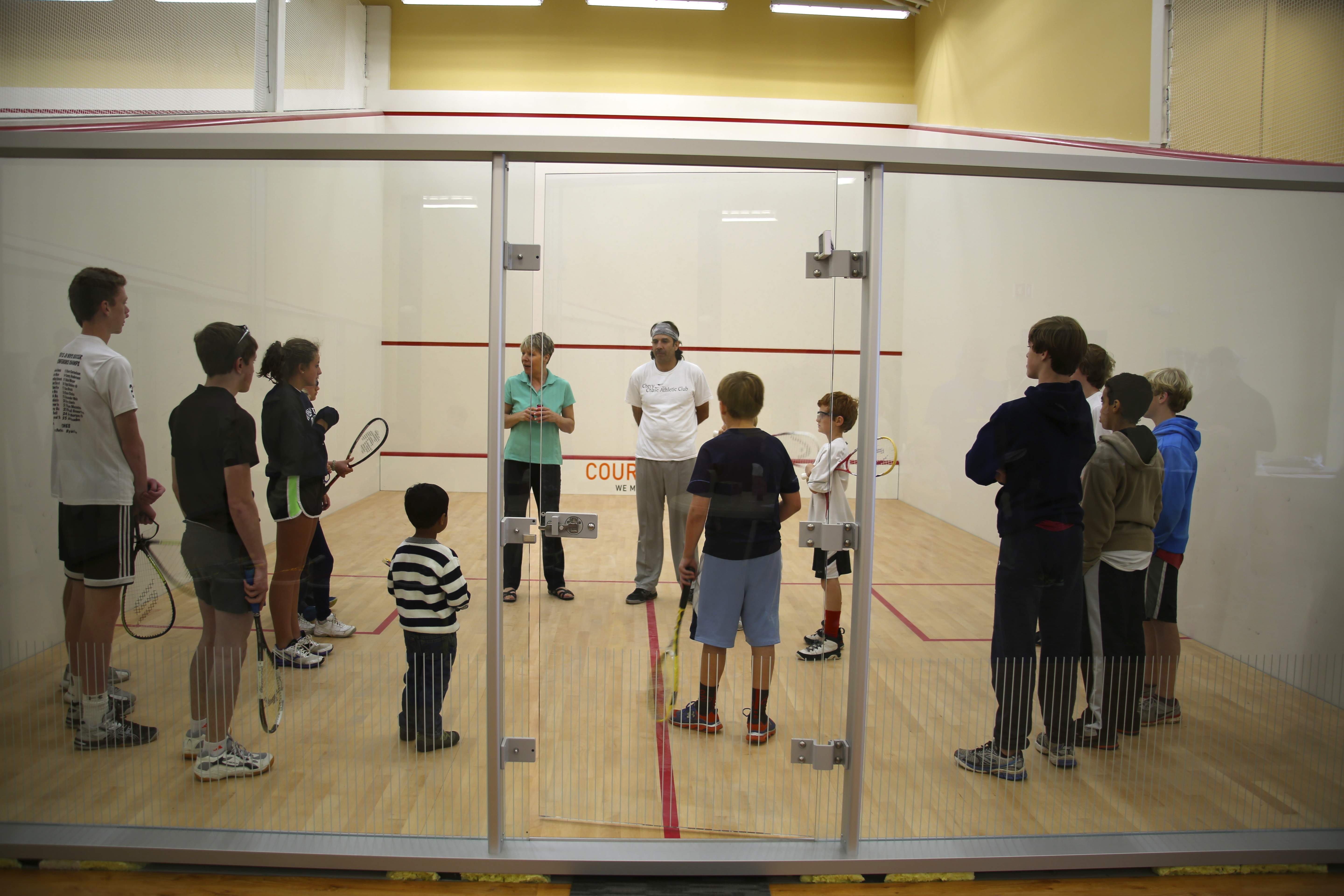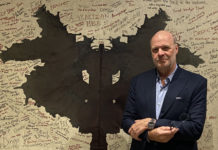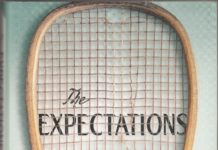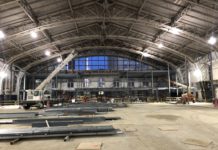
By Chris McClintick
For years, the Providence Square Shopping Center in Charlotte, North Carolina, had festered in a state of abandon. Once a thriving shopping center with more than twenty outlets opened in the early 1970s, the new millennium brought with it financial strife and foreclosure to its corporate inhabitants, leaving boarded-up shop windows in its wake.
Until the summer of 2014, that is, when construction began on what would become the Charlotte Squash Club—the only squash facility in North Carolina to house four international singles courts. In its first year, the club has already revived a dwindling squash scene, and established itself as a nucleus of the sport in the region.
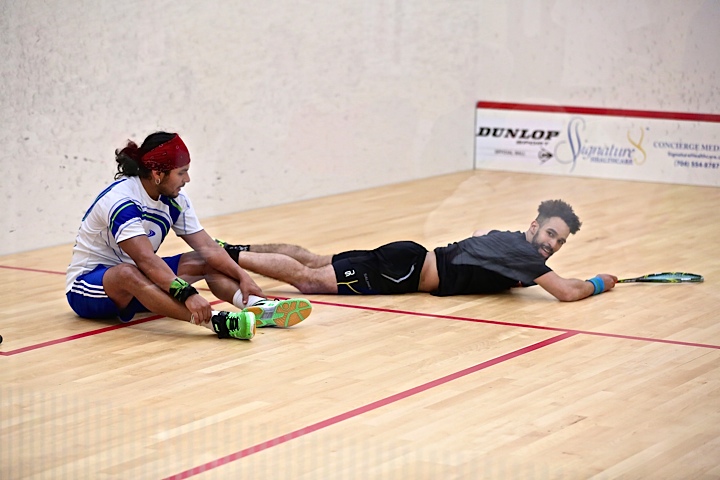
When Jim Marshall arrived in Charlotte with his wife in 1993, he began playing and coordinating Saturday morning “squash fever” on the only quasi public courts—two converted courts with movable walls—at what was then known as the Tower Club in downtown Charlotte. In 2005, the Tower Club closed, spurring Marshall and his fellow players to discuss alternatives, including raising money locally to fund construction of new courts. Marshall, who picked up the sport as a student at Bowdoin in the 70s, had some previous exposure to opening new squash clubs as a founding member of Meadow Mill Athletic Club while living in Baltimore, and began gauging interest. Some funds were put forward and locations surveyed, but the necessary balance between funding, location, permitting, and construction cost never came to fruition. Hopes for a new facility dissipated when the Tower Club reopened under a new aegis, attracting much of its former squash player base, and Saturday morning squash fever resumed.
Around the time of the newly-dubbed Charlotte Athletic Club’s reopening, Graeme Dykes, a former Zimbabwean professional and now a computer software executive, moved to Charlotte and joined the Saturday round robin crew. Dykes latched on to the idea of a larger, squash-specific facility with international standard courts in Charlotte and, in addition to his equity, began to attract other investors—reigniting the search for a new squash home. Seeking more expertise on opening a squash club, Marshall was put in contact with Connie Barnes, who founded the AussieNick Squash Club in Chevy Chase, Maryland, and will open a new facility in Columbia, South Carolina, with two singles and one doubles court this September.
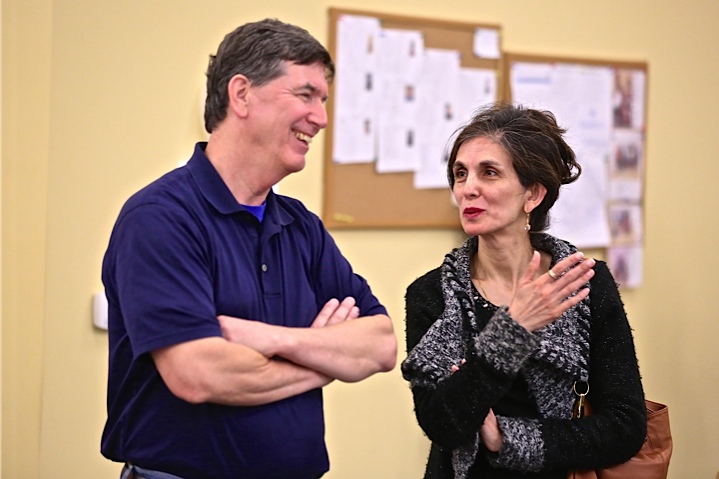
Barnes & Dykes became financial partners, which intensified the search process led by Marshall and Dykes in Charlotte. With the help of a realtor, Marshall found the high-ceilinged Providence Square space. On June 9, 2014, the group signed a lease for the space and construction began. On World Squash Day, October 18, the club held its first open house. On November 1, the membership-based club opened its doors with a clinic by former world No. 1, David Palmer.
Tapping into what Marshall estimated to be an existing player base of 50-75, the club quickly had over seventy memberships. Led by professional Mir Zaman Gul, a string of US Squash-accredited junior silver tournaments were added to the club’s calendar—the first to be held in North Carolina. AussieNick’s urban beneficiary, SquashEmpower, branched out to Charlotte. Outreach to local schools introduced the sport to juniors through demonstrations with a ball, racquet, and gymnasium wall, which initiated the formation of club teams at Charlotte Country Day and Covenant Day schools.
In February of 2015, with the support of the Rich Family and the Jesters, the club hosted the inaugural Charlotte Intercollegiate Squash Invitational, drawing emerging teams from College of Charleston, Davidson, Duke, UNC, and the University of Miami—all of which started their programs in the last five years. Davidson, which competed in its first nationals this year, has just one converted court at its disposal and hopes to take advantage of the new club located just a thirty-minute drive south of campus. In an open letter to the Charlotte Squash Club, Davidson captains Matt Dwyer and Will Bolton wrote: “The Charlotte Squash Club has been a fantastic resource for surrounding colleges, bringing teams from throughout the region to compete. The Southeast is just beginning to get its teeth into the sport and will produce some teams and players to be reckoned with in the near future.”
Duke, meanwhile, serves as another beacon of the sport’s growth in North Carolina. In March 2014, the Blue Devils raised enough money to construct two international singles courts in the University’s Recreation and Physical Education Center. On the South Carolina coast, Charleston is in the bidding process for the construction of five courts.
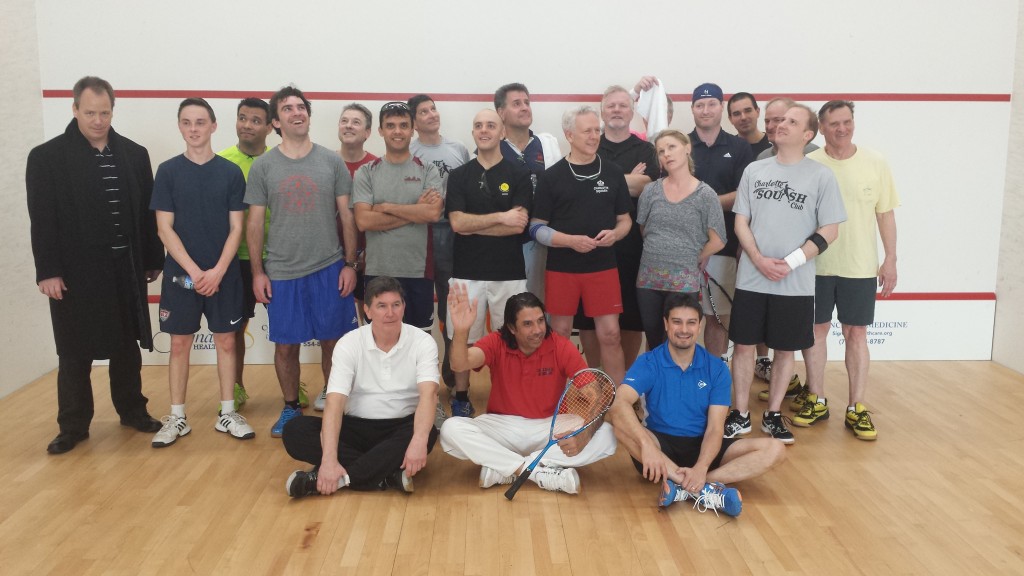
The pinnacle of the club’s inaugural year came in the form of the Charlotte Open, a $5,000 U.S. Pro Series tournament, and the first professional squash tournament the state has ever hosted. Marshall reveled in his roll as the official court wiper, but also concurrent amateur draws creating interaction between the club members and down-to-earth professionals throughout the week (an aspect entertainingly chronicled by tournament wild card Cass Sunstein in The Atlantic). For the first time in many of the club member’s lives, they were witness to world-class squash on their own, world-class courts.
More tournaments—amateur, junior, and professional—are in the works. Marshall says that regional amateur tournaments could soon involve inter-city team play between their Southeastern Squash Racquets Association brethren.
“My expectation was never that the entire city of Charlotte would descend upon the squash courts and be enthusiastic overnight,” Marshall said.
“But it was a long-term project. We’re further ahead than I anticipated in terms of adults coming back to the game; newcomers, and kids picking up the sport. It’s just one of those things we’ll have to keep working at steadily and, in the long run, we’ll have a very viable program here at all levels. We’re already planning on bringing another professional event back here around the same time next year, and we’ll continue to host junior and adult tournaments. I’m very optimistic about it.”
Saturday morning squash fever lives on in its new home—the product of a ten-year search. Marshall still participates and helps organize the round robins each week. However, two aspects of his Saturdays have been different lately than those over the past two decades: four international standard courts and, on them, new faces.


